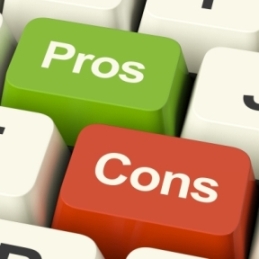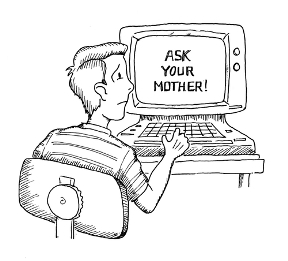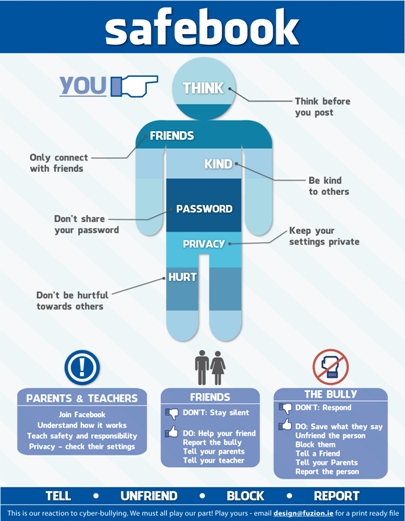“Mom, don’t you know that ALL my friends have Facebook accounts!! Can I have one?”
“Dad, how will I know what’s going on with my friends if I’m not on Facebook?!?”
Let’s face it – social media has become a major part of the way we all communicate, children included. It offers a way to stay in touch with family and friends who live far away. And with the increasing availability and use of smart phones, tablets, computers and the Internet along with the popularity of social media sites, such as Facebook, LinkedIn, Foursquare, Pinterest, Twitter and more—we can access almost anyone, anywhere.
Ontdekken van Niche Sportweddenschappen in Nederland
In Nederland is de wereld van sportweddenschappen een populaire en dynamische industrie. Terwijl velen bekend zijn met traditionele sportweddenschappen zoals voetbal en tennis, zijn niche sportweddenschappen in opkomst. Het ontdekken en verkennen van deze minder bekende sporten biedt niet alleen nieuwe mogelijkheden voor gokliefhebbers, maar opent ook de deur naar unieke en opwindende weddenschapservaringen.
In dit artikel duiken we dieper in op het fenomeen van niche sportweddenschappen in Nederland. Van obscure sporten tot opkomende competities, we zullen verkennen hoe deze nichemarkt evolueert en welke kansen het biedt voor zowel gokkers als weddenschapsplatforms. Ben jij klaar om de traditionele gokwereld te verlaten en je te begeven in de opwindende wereld van niche sportweddenschappen? Lees verder om te ontdekken hoe je jouw gokervaring naar nieuwe hoogten kunt brengen!
Opkomst van Niche Sportweddenschappen in Nederland
In Nederland groeit de populariteit van sportweddenschappen gestaag. Naast de bekende sporten zoals voetbal en tennis, begint ook de interesse in niche sportweddenschappen toe te nemen. Deze nichesporten bieden unieke kansen voor zowel bookmakers als gokkers om nieuwe markten te verkennen en te benutten.
Een van de opkomende niche sportweddenschappen in Nederland is bijvoorbeeld eSports. Met de groeiende populariteit van gaming en eSports-evenementen over de hele wereld, ontdekken steeds meer mensen de spanning van het wedden op professionele gamingcompetities. Dit opent de deur naar een geheel nieuwe doelgroep voor de gokindustrie.
Naast eSports zijn er ook andere niche sportweddenschappen zoals darts, snooker, en zelfs surfen die langzaam maar zeker terrein winnen in Nederland. Voor liefhebbers van deze sporten bieden de opkomende mogelijkheden om te wedden op hun favoriete evenementen een boeiende en verfrissende ervaring. Het ontdekken van deze niche sportweddenschappen voegt een extra dimensie toe aan de algehele gokervaring in Nederland.
Invloed van Digitalisering op Niche Sportweddenschappen
In Nederland groeit de interesse in niche sportweddenschappen gestaag. Steeds meer mensen ontdekken de opwinding en potentie van weddenschappen op minder bekende sporten. Een handige bron voor het verkennen van deze niche markt is winstwijzer.com. Deze website biedt waardevolle informatie en tips voor het succesvol inzetten op diverse sportevenementen.
Met een groeiende populariteit van niche sportweddenschappen, is het belangrijk om goed geïnformeerd te zijn over de verschillende mogelijkheden en strategieën. Winstwijzer.com fungeert als een gids die spelers helpt bij het begrijpen van de nuances van het wedden op minder gangbare sporten. Door gebruik te maken van de expertise en analyses op de website, kunnen wedders hun kansen op winst vergroten.
Door het ontdekken van niche sportweddenschappen in Nederland kunnen spelers profiteren van unieke kansen en hogere potentiële uitbetalingen. Winstwijzer.com biedt inzicht in diverse nichesporten en toernooien, waardoor wedders hun horizon kunnen verbreden en nieuwe strategieën kunnen ontwikkelen. Met de juiste kennis en begeleiding kunnen spelers succesvol zijn in deze specifieke tak van sportweddenschappen.
De opkomst van niche sportweddenschappen in Nederland opent de deur naar een spannende en lucratieve wereld voor liefhebbers van zowel sport als gokken. Met winstwijzer.com als betrouwbare bron van informatie en advies, kunnen wedders hun vaardigheden aanscherpen en meer winstgevende beslissingen nemen in deze groeiende markt.
Regulering en Wetgeving omtrent Niche Sportweddenschappen
In Nederland groeit de populariteit van sportweddenschappen gestaag. Naast de traditionele sporten zoals voetbal en tennis, is er een groeiende belangstelling voor niche sportweddenschappen. Dit omvat weddenschappen op minder bekende sporten zoals handbal, wielrennen, en zelfs e-sports. Het ontdekken en verkennen van deze niche sportweddenschappen opent nieuwe mogelijkheden voor zowel bookmakers als gokkers.
Een van de voordelen van het verkennen van niche sportweddenschappen is de potentieel hogere winstgevendheid. Omdat deze sporten minder mainstream zijn, zijn de quoteringen vaak gunstiger. Dit betekent dat gokkers meer kunnen winnen met lagere inzetten in vergelijking met populaire sporten. Door de diversificatie van weddenschappen en het begrijpen van de nichemarkten kunnen gokkers hun winstkansen vergroten.
Bovendien bieden niche sportweddenschappen een unieke en verfrissende gokervaring. Het wedden op minder bekende sporten kan opwinding en spanning toevoegen aan de gokervaring, vooral voor diegenen die op zoek zijn naar nieuwe uitdagingen. Daarnaast kan het verkennen van niche sportweddenschappen gokkers helpen om hun kennis en begrip van verschillende sporten te verbreden.
Met de opkomst van online gokplatforms wordt het ontdekken van niche sportweddenschappen in Nederland gemakkelijker dan ooit. Gokkers kunnen profiteren van een breed scala aan sporten en evenementen om op te wedden, waardoor de gokindustrie steeds diverser en inclusiever wordt. Door open te staan voor nieuwe mogelijkheden en het verkennen van niche sportweddenschappen, kunnen gokkers een boeiende en lucratieve gokervaring beleven.
Populariteit en Groeipotentieel van Niche Sportweddenschappen in Nederland
In Nederland groeit de populariteit van sportweddenschappen gestaag, met een toenemend aantal mensen die op zoek zijn naar nieuwe en opwindende manieren om te wedden. Een interessante ontwikkeling binnen deze branche is het ontdekken van niche sportweddenschappen. Dit houdt in dat mensen hun inzetten plaatsen op minder bekende sporten of evenementen, waardoor ze nieuwe mogelijkheden en uitdagingen kunnen verkennen.
Door het ontdekken van niche sportweddenschappen kunnen gokliefhebbers in Nederland een geheel nieuwe wereld betreden, waarbij ze hun kennis en vaardigheden kunnen testen op gebieden die minder mainstream zijn. Dit kan variëren van sporten zoals schaken, darts of zelfs e-sports, tot specifieke lokale evenementen die normaal gesproken minder aandacht krijgen in de traditionele gokwereld.
Het verkennen van niche sportweddenschappen biedt niet alleen nieuwe kansen voor gokkers, maar ook voor bookmakers en online platforms die deze nichemarkten kunnen benutten. Door een breed scala aan sportweddenschappen aan te bieden, kunnen aanbieders hun klantenbestand vergroten en tegelijkertijd een unieke en gepersonaliseerde gokervaring bieden.
Al met al biedt het ontdekken van niche sportweddenschappen in Nederland een boeiende en innovatieve benadering van de gokindustrie, waarbij spelers worden aangemoedigd om buiten de gebaande paden te treden en nieuwe avonturen aan te gaan. Met een groeiende interesse in deze nichemarkten, kunnen zowel gokkers als aanbieders profiteren van de diversiteit en opwinding die deze unieke vorm van weddenschappen met zich meebrengt.
Marketingstrategieën voor Niche Sportweddenschappen in de Nederlandse markt
In Nederland groeit de populariteit van sportweddenschappen gestaag, maar een interessante ontwikkeling is het ontdekken van niche sportweddenschappen. Steeds meer mensen raken geïnteresseerd in het wedden op minder bekende sporten zoals darts, snooker, en zelfs e-sports. Deze niche sportweddenschappen bieden een unieke kans voor zowel bookmakers als gokkers om nieuwe mogelijkheden te verkennen en te profiteren van kansen die traditionele sportweddenschappen misschien niet bieden.
Door het ontdekken van niche sportweddenschappen in Nederland krijgen liefhebbers de kans om hun kennis en passie voor minder populaire sporten te benutten. Het wedden op deze nichesporten kan een spannende ervaring zijn, omdat het vaak meer diepgaande kennis vereist en hogere potentiële uitbetalingen kan opleveren. Met de groeiende interesse in niche sportweddenschappen wordt de gokmarkt in Nederland diverser en boeiender, en biedt het zowel beginners als ervaren gokkers nieuwe mogelijkheden om hun geluk te beproeven.
Al met al biedt het ontdekken van niche sportweddenschappen in Nederland een boeiende en lucratieve mogelijkheid voor liefhebbers van gokken. Door de diversiteit aan sporten en weddenschappen die beschikbaar zijn, kunnen spelers een unieke en spannende ervaring beleven. Met een groeiende markt en toenemende interesse in niche sporten, is het een opwindende tijd om deze wereld te verkennen. Of je nu een doorgewinterde gokker bent of gewoon op zoek bent naar iets nieuws, de wereld van niche sportweddenschappen heeft voor elk wat wils.
We all know that social media sites are great for building existing relationships and creating new ones – that’s on the positive side. But along with the benefits come the concerns – your children could be unknowingly putting themselves in harm’s way by posting personal information or compromising images, by agreeing to interact with potentially harmful contacts and worst of all, they could potentially be exposing themselves to cyberbullying – online bullying, which according to recent studies, most often happens between friends!
So, probably a lot sooner than you expected , you are facing yet another parenting dilemma – should you allow your child to have a Facebook or (any other social media) account?
Is your child under the age of 13?
You should be aware that if your child is under the age of 13, if they create a Facebook account, it is in direct violation of the Facebook Terms and Conditions, which clearly state “you will not use Facebook if you are under the age of 13.” The only way to actually create a Facebook account is to lie about your child’s age, if you do so, you are teaching them a lesson – lying is OK.
So how will I know if it’s time?
These basic points will help you decide if your children are ready for social networking, and if you are ready for them to be there.
- Computer literacy: Most kids are more knowledgeable about computers than their parents, but for those who aren’t – make sure they know their way around a computer and the internet before opening an account. Ask yourself – do you know enough to be able to guide them?
- Social Networking proficiency: Are you yourself familiar enough with social networking sites to be able to teach your kids how to safely use them?
- Time and energy: Are you ready to be actively involved? You need to be there, hovering over their shoulders, so to speak, guiding, explaining, monitoring. That’s quite a commitment. Are you ready to invest the time and energy needed? (And get used to seeing POS written in their chat – it means Parent Over Shoulder).
- Danger awareness: Are you ready to help your kids understand the potential risks and dangers, such as cyberbullying and sexting, so they are well informed and prepared?
- Open communication: Do you have a good relationship with your kids? Are you able to maintain open, honest, and frequent communication with your children? This is critical as your children should feel comfortable enough to talk to you about any problem or discomfort they experience.
- Right vs. wrong: Are your kids emotionally mature and responsible enough? Can they understand the difference between appropriate and destructive on line behavior? Are they capable of practicing Facebook and internet etiquette?
You’ve decided the time has come, your kids are ready…
Once you decide your kids are ready to handle the world of social media, it is important to set up guidelines or rules for use. Will there be set times for Facebook use? Will you have to approve new friends? What types of things are appropriate to include on a status update? Are children allowed to upload photos? Should parents approve first? Will parents have the password to the Facebook account? At what point will Facebook use be suspended?
And for some basic Facebook safety rules check out the following infographic:








